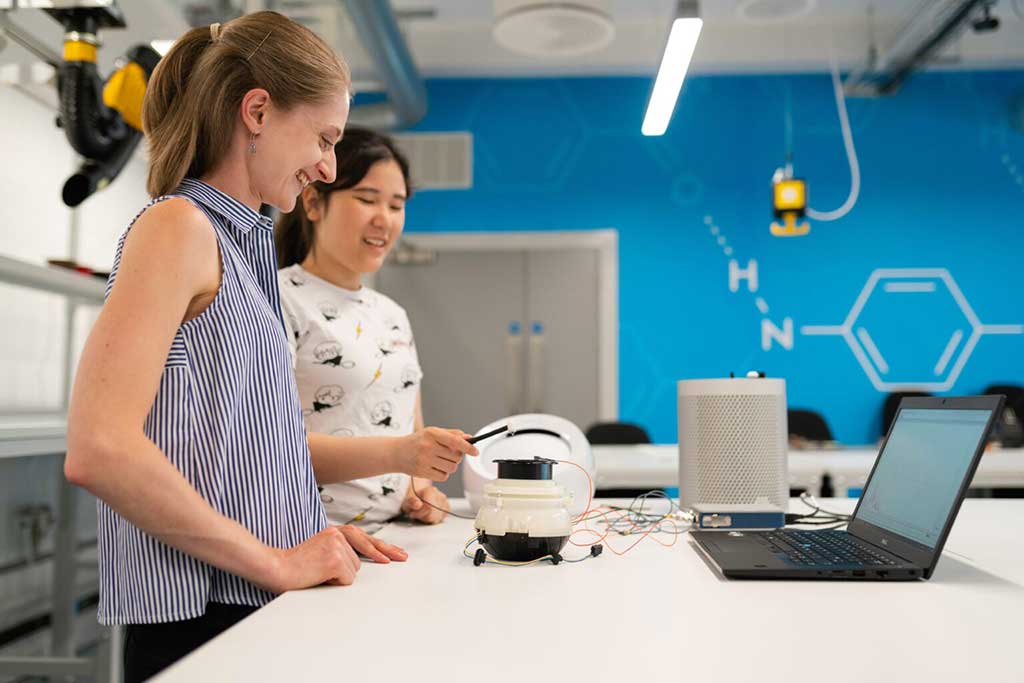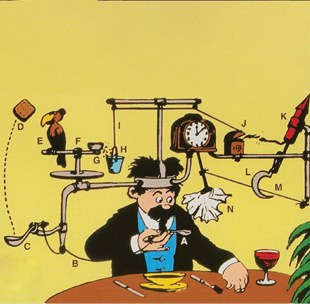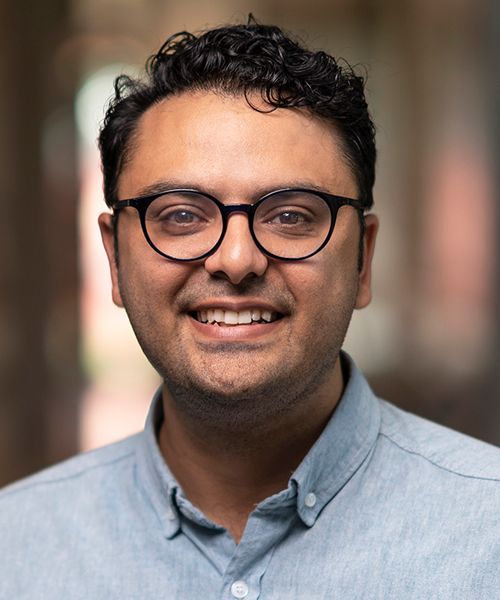Educating the engineers of the future
Dr Ehsan Nabavi originally trained as a civil engineer before completing his PhD in sociology at ANU, and working as a Research Fellow at the 3Ai Institute and the STS group at the Harvard Kennedy School. He convenes the Professional Practice courses for engineering and computing graduate students that focus on developing professional and communication skills for the 21st century workplace.
The courses aim to heighten students’ awareness of professional practice, and to develop new interpersonal and communication skills, leading to students becoming more competent professionals in their field.
Based on Engineers Australia and Australian Computer Society professional competencies, students will develop and practice fundamental skills required by industry to better equip them for the workforce.
What needs to change to educate the engineers of the future?
The pandemic has pushed us all further into a digital world. Whether we like it or not, we are now living in the world that has been shaped by engineers and their innovations over the past century. And of course, engineers will continue to play and extend this role into the future by building a new generation of machines, materials, and systems.
However, when we look back into the history of engineering, we see not all of the engineering breakthroughs brought good to the world.
New technologies promise higher quality of life by increasing the efficiency in everything – which can sound quite exciting. But it is naïve, if not irresponsible, for engineers to ignore the fact that all technologies can come with unintended consequences.
The very foundation of current engineering education was built in a time when we didn’t think of the range of consequences of technology. Now, we have a better understanding about the interactions occurring between technology, society, and environment, and we need a change in our education.
We need a new engineering education which acknowledges gaps and limitations of conventional engineering which has given us both good and bad over the last century. It has given us modern manufacturing and agriculture but also caused climate change, dried up rivers and wetlands, forest destruction, and massive people displacements. We can’t afford to repeat the history, training professionals who fail to realise that technologies are here to serve humanity — and not to glorify it.
The good news is an increasing number of educational institutions around the world share the same interests in changing the engineering education. Here at ANU we are working to reimagine the core curriculum of engineering disciplines.
But to bring change to the education of the engineers of the future, the very first question is what the new skills are. Where do we focus? What do we give up?
The answer is not easy and it depends on whom you ask. Insights from humanities and social sciences should be a key part of the answer. But even if we agree on this, the details remain murky.
As the convenor of Professional Practice courses, during the Canberra lockdown, I began to redesign the courses, in order to make them more relevant to the future of engineering education. And that means I had to explore this murky world for myself.
The starting question for me was how the next generation of engineers should think and practice differently from professionals in 20th century
What are their required skill sets? Should there be less emphasis on technical skills when calculations are best performed using AI or similar technologies? Should there be more emphasis on reflexivity and scrutinizing value systems and theories that shape engineering innovations? Should there be more emphasis on system thinking and discovering interconnections? What about communication skills and transdisciplinary teamwork? How should those skills be integrated into the curriculum and to what extent?

What are you looking to achieve in the Professional Practice courses?
I believe there are three general skills that future engineers needs to have in order to think and practice not only professionally, but responsibly. The notion of ‘responsibility’ is central in my teaching and why I think these three skills are critical to educate the engineers of the future.
Those skills are (1) systems thinking, (2) critical and ethical thinking, and finally (3) effective engagement.
Professional Practice courses is built on core ideas from these three domains that are developed and deepened over a year period, allowing students to master them using different real-world challenges.
In Professional Practice courses, students learn if they fail to carefully weigh the long-term impact of their innovations, then they share the responsibility if their innovation is used in ways that harm the public good.
As an engineer, I also want my students learn that the physical space of technology is not the only space they are responsible for. Rather, it’s their responsibility to look around more carefully and see other alternatives before pushing their technical expertise into the problems.
In Professional Practice courses we discuss why engineers and computing professionals should take more leadership when they work and innovate — without leaving things to the society and government to decide how they want to use the result of their work.
Students learn it is their responsibility to think beyond now and consider long-term effects of their work happening in other systems involved in their projects-e.g. social, environmental, and cultural.
In my teaching I expose students to this somehow shocking reality that as engineers they have a massive agency to shape people’s behaviour and daily routines, including themselves. And that puts a great responsibility on their shoulders. I often use the analogy of a kid who is molding play dough into different shapes to give them the idea that how engineers can shape and reshape society by their innovation.
The courses are designed to remind students over and over not to be complacent about their ability and agency and recognise their responsibility as a professional.
What are the key challenges you’re facing?
Across the university, we are committed to provide the best learning experience for our students. Like others, I also attempt to lay out an aspirational vision for what these two courses could be—courses which aims to equip students with the right skill set for making them a responsible professional.
Having said that, the key challenge for developing these courses and making them effective in students learning journey is how I can help student to change their engineering mindset.
The change of mindset is not easy. At least it wasn’t easy for me when I left engineering to pursue my PhD in sociology. In my case, as soon as I stated my PhD I found that an engineer’s concept of ‘common sense’ solutions is different from a sociologist’s viewpoint. In fact, sometimes it was the opposite.
When I was working in engineering consultancy building a new dam or desalination plant, or increasing the ‘efficiency’ of water by upgrading irrigation infrastructure or reusing wastewater were all ‘common sense’ solutions. Looking at these solutions from a sociologist’s viewpoint, however, led me to a very different set of questions, such as: ‘Efficiency for whom, and for what purpose?’ ‘What about people who live nearby, and their history and culture?’
In Professional Practice courses, I expose students to this type of questions. Their common sense is challenged, and their technical biases are explored using real-world scenarios. And the challenge for me is to ensure the students learn what they should learn, but also enjoy the journey. The challenge for me is to help students change their mindset about the technology and innovation; to help them understand they should keep society’s needs, values, and aspiration at the heart of their professional practice. And I know it is not easy.
But, what I am doing — and will continue to do — to tackle this challenge is to embrace what I frequently emphasise in my classes about the learning: that is taking the risk, trying hard, being okay with failing, listen and ask for the feedback, and improving.



